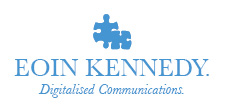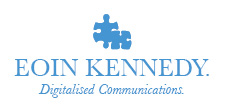What is your online reputation number?
How influential someone is in PR has alway been a bit foggy to say the least. It is easy to claim you are influential but proof has normally been in the form of being able to open doors or hidden in the infamous black book of contacts.
In theory online makes it easier to check how influential someone is. Things have moved on in terms of people merely using the web to increase their digital footprint. To date there has been a bit of land grab in terms of occuping certain spaces and putting up profiles and leaving them to gather dust. This was useful at the beginning where you could find someone’s LinkedIn profile when you searched for their name but its hardly an indication of their influence – its merely that they exist. Now as people gather and participate in communities around them it is easier to get a better sence of their consistent presence on the web but also their level of contribution.
Piaras Kelly posted about what your Facebook connections could indicate about you sometime ago and Tom Murphy has posted more recently about an Andrew Smith comment on how the media are using LinkedIn profiles to vet the credibility about a potential spokesperson.
There is no doubt that this will continue to evolve further but it is not an easy task to acertain someone influence as Micah Baldwin comments in Mashable.com. As a starting point he points to
Incoming Traffic – Pageviews, Incoming traffic from search engines, rss subscribers
Incoming Links – Primarily manual links such as blogrolls, in-post deep links
Reader Engagement – Internal searches, time on site
Recommendations – Retweets, share stats
Connections – Number of mutual connections, number of mutual connections on multiple sites
Track Record – Age of domain, number of blog posts, length of engagement
Engagement – How often and long a person has engaged with a service online
It is possible to get a manual snapshot of someone by using some of the tools that are available. By inputting someones blog url in Technorati you can get a numercial indication of their authority and ranking. By looking at their Twitter profile you can see how many people are following them and how many updates they have made. LinkedIn will show their connections, groups, length of time on the community and you can check how active they are in that forum. Similarly with Facebook and other social media.
None of these are perfect measures and having lots of stuff online does not equate to being influential but its a better start than taking someones word for it.
Surely there is good scope for someone to develop a FREE application that is comprehensive enough to take account of the different platforms (ie number of retweets on Twitter, pics through Twitpic etc to the strength of connections in Facebook rather than numbers) so that it goes beyond a popularity contest and give a genuinely useful figure. Following 500 people is very different to being followed by 500 people. It would encourage people to move from ‘I am online’ to ‘I participate and contribute online’. If there was an acceptance of the importance of a ORN (online reputation number) number and people could increase that number by engaging more surely this would lead to an uplife in genuine online activity.
I imagine such applications would be greately aided by people inputting their handles, user names for the different platforms with boxes to fill for a wide range of social media. This is probably especially true as people use different usernames and handles. There may be some issues with walled communities but technology normally finds a way around these.
I am sure that there are a few out there that come close to this but I have not found any to date. Let me know if I am missing the obvious. A simple tool could always progress into a more complex one.



3 Comments. Leave new
Good post Eoin. The challenge will be to make the metrics meaningful both for now, and an ongoing basis. On Twitter, it is not hard to boost numbers, and with more social media applications coming on stream and in vogue, it will be important to make allowances for new data. I suspect that a tool like this will be created, we are just a little too early on the evolution of social media platforms as there are too many walled gardens to get meaningful data from without come ‘creative’ interpretation. One concept to watch for…
Thanks Eoin. A fine thought-provoking piece. I support your quest, and, when you reach breakthru please let me know.
Meanwhile, I’ll re-tweet you and the person who told me about you, and I’ll check you out to see whether you’ve published other good stuff.
Thanks Paul. I imagine this is something that will happen anyway and will probably need a developer to build but communications professionals could have a natural role in framing it.